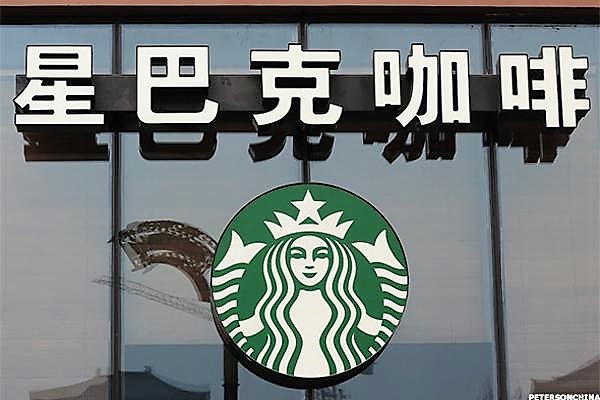To receive a free full-text email of The Zeitgeist whenever we publish to the website, please sign up here. You’ll get two or three of these emails every week, and your email will not be shared with anyone. Ever.

To inspire and nurture the human spirit – one person, one cup and one neighborhood at a time.
That’s the Starbucks corporate mission statement. LOL.
Starbucks Faces An Escalating Crisis In Hong Kong [International Business Times]
Starbucks’ stores in Hong Kong were recently burned and vandalized amid the escalating protests and riots across the city. The protesters justified the attacks by claiming that Maxim’s Group, which owns Starbucks’ licenses in Hong Kong and Macao, supports Beijing and opposes the protests.
The attacks started after Annie Wu, the daughter of Maxim’s founder, spoke out against the protests during the UN Human Rights Council meeting in mid-September. Speaking to CGTN (the overseas arm of China’s state-backed CCTV), Wu called the protests “riots” and expressed hope that the Hong Kong police force would “maintain law and order.”
The point of this article is that Starbucks is “between a rock and a hard place” when it comes to Hong Kong, as the franchisee who owns the HK stores – Maxim’s Group – is kissing Xi’s ring, which has resulted in some store damage from protesters, plus something of a Starbucks boycott in the city.
This is a bad take.
The truth is that there’s no rock and no hard place in the store damage or the HK semi-boycott.
The lost sales on 174 HK-based Starbucks are the cheapest insurance policy the company could possibly buy against an NBA-like disruption on its 3,748 other Chinese stores.
Even better, because the Starbucks stores are franchised to Maxim’s Group, who is more than happy to do the dirty work here, Starbucks itself can remain pleasantly anodyne.
Starbucks itself can wallow publicly in its mission statement of “inspiring and nurturing the human spirit” … everywhere except Hong Kong, that is.
Don’t get me wrong … it’s a very clever strategy. Very Coyote-ish.
But ultimately, I think this strategy will prove to be too clever by half.
Why?
Because when you’re dealing with a government that says this …
We believe that any remarks that challenge national sovereignty and social stability are not within the scope of freedom of speech.
… then ultimately you’re going to be forced to make a choice.
Do you want to preserve your authenticity and your brand, or do you want to preserve your earnings guidance and share price?
Choose one. You can’t have both.
THIS is the rock and the hard place that Starbucks and the NBA and Activision and Disney and GM and every other US corporation with consumer-facing products in China now find themselves between.
No one will believe me when I say this, but it’s the truth:


This is almost the same as almost any registered financial institution, and much more so with any cryptocurrency MSB. You have a license to protect.
Agree. However, Starbucks management has a bad habit of opening their mouths and inserting their feet. It will be interesting to see how long the Seattle SJW’s can duck & cover.
You don’t have to be a customer of theirs to use their bathroom or their WiFi. Because you are special and they care about more than your money. Also they are fine keeping their mouth shut when the Chinese government is locking up political prisoners, oppressing religious freedom of Muslims and Christians, and controlling the flow of information. Because unlike the homeless vagrant in Seattle, the targets of systemic oppression in China are not special. I’m interested to see how they square this circle. Because they cannot pretend like their brand of wokeness is compatible with the current Chinese regime. But I bet they spend a lot of money on a PR firm to craft a message that says otherwise. Will be fascinating to watch.
The conflict between the US and China is similar to the one between Britain and Germany a century ago.
In both cases, a financially leveraged great power is trying to contain a rising great power that has been using its real productivity to prop up the money and debt of the former.
The real problem for the reigning hegemon is that the rising power is not friendly enough to want to continue to carry its water, to continue to believe in the value of its issued assets and keep it afloat. That the rising power is a dictatorship is all the excuse required to beat it down in any way one can.
In the case of Germany, the flimsiest of excuses were used by Britain to join World War I that resulted in massive death tolls for Britain. In the US, freedom of expression was suspended (the Espionage Act of 1917 made it illegal to write against the US joining the war.) Let us hope this time we don’t eventually have all-out war.
Indeed, this is serious business. Not many people truly appreciate the financial fragility of the global imperial system, or the ability of an unfriendly big state to destroy it. All efforts must be used to contain that state.